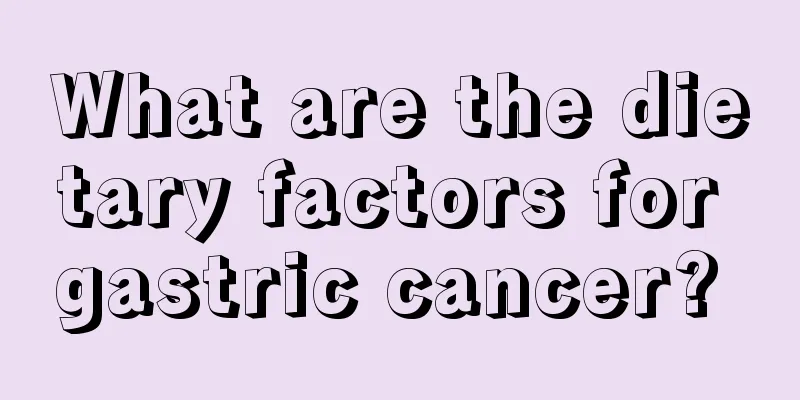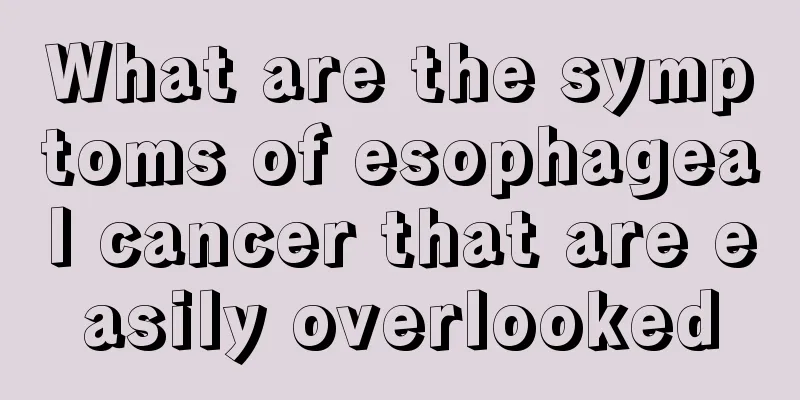What are the dietary factors for gastric cancer?

|
The incidence and mortality of gastric cancer vary greatly in different countries around the world, suggesting that environmental factors play an important role in the etiology of gastric cancer. A large amount of epidemiological data suggests that dietary factors are the most important among environmental factors. After a large number of investigations and studies, risk factors include high-salt food, moldy food, bad eating habits, gastric diseases, family history of cancer, mental trauma and personality depression. Protective factors include fresh vegetables, fruits, soy products, milk and fresh fish, garlic, onions and green tea containing sulfhydryl groups. Since food directly contacts the stomach, stays in the stomach and is initially digested, the stomach is subject to mechanical friction and chemical stimulation from the food. The presence of carcinogenic factors in certain foods has long been recognized by people. (1) Nitrite and secondary amines: Pickled vegetables contain a large amount of nitrite and secondary amines, which can synthesize nitrosamine compounds under the appropriate acidity in the stomach or the action of bacteria. These compounds are strong carcinogens. In recent years, people have paid great attention to the carcinogenicity of N-nitroso compounds, and research on the etiology of gastric cancer has made important progress. N-nitroso compounds include two major categories: nitrosamines and nitrosamides. Nitrite can easily form nitrosamides with amines in the stomach at pH 1-4, which can directly induce tumors in the stomach without any metabolic activation. The direct carcinogenic activity of nitrosamides is of special significance in the etiology of gastric cancer. (2) 3-4 Benzopyrene and cyclopentane: Smoked fish and smoked meat contain large amounts of the carcinogens benzopyrene and cyclopentane. Fried, baked, burnt foods and reused high-temperature cooking oils also contain these carcinogens. (3) High-salt food: A high-salt diet promotes the occurrence of gastric cancer. Experimental studies have confirmed that high salt can damage the gastric mucosa and increase the body's susceptibility to carcinogens. People who consume high-salt food every day have a significantly increased relative risk of gastric cancer. (4) Fungi: Food contaminated by mold can cause cancer. Some fungi are toxic and are strong carcinogens. At the same time, certain foods produce a large amount of nitrite and secondary amines under the action of toxic fungi. After entering the body, under certain conditions, the stomach can synthesize nitrosamine compounds and cause cancer. In addition, metal ions in contaminated water sources and rice treated with talc are carcinogenic because they contain asbestos fibers. |
<<: Differential diagnosis of lung cancer and pulmonary tuberculosis
>>: Early clinical manifestations of gastric cancer
Recommend
The efficacy and function of sea buckthorn oil
As a raw material for health food, sea buckthorn ...
What are the nursing methods for patients with malignant lymphoma
Rehabilitation nursing after treatment of maligna...
Maintaining a good attitude can effectively prevent brain cancer
Brain cancer is a serious malignant tumor clinica...
How to fall asleep quickly when the dormitory is too noisy
I believe that everyone will face a problem after...
Is donating blood good or bad?
Nowadays, many people donate blood regularly. For...
Right eyelid drooping
The eyelid, which is what we call the eyelid, bec...
What's the matter with thin legs and fat upper body
Thin legs and a fat upper body may be caused by s...
What is estrogen?
Maybe many people are still unclear about what es...
Symptoms of depression
Diseases are very common. There are many common t...
Tricuspid valve regurgitation_severe tricuspid valve regurgitation
There are many types of heart problems, and tricu...
How to quickly relieve allergic redness and swelling
Skin allergy is also called sensitive skin. From ...
How can I make my nails look good if they are genetically ugly
If you have carefully observed our nails, you wil...
Is Lao Lai Qiao Hua poisonous?
Laolaiqiao, also known as the 'color-changing...
How is paranoid personality formed? It is mainly caused by these four reasons
Paranoid personality is also called delusional pe...
What is the correct way to use air conditioner cleaning agent
With the arrival of summer, the weather is gettin...









